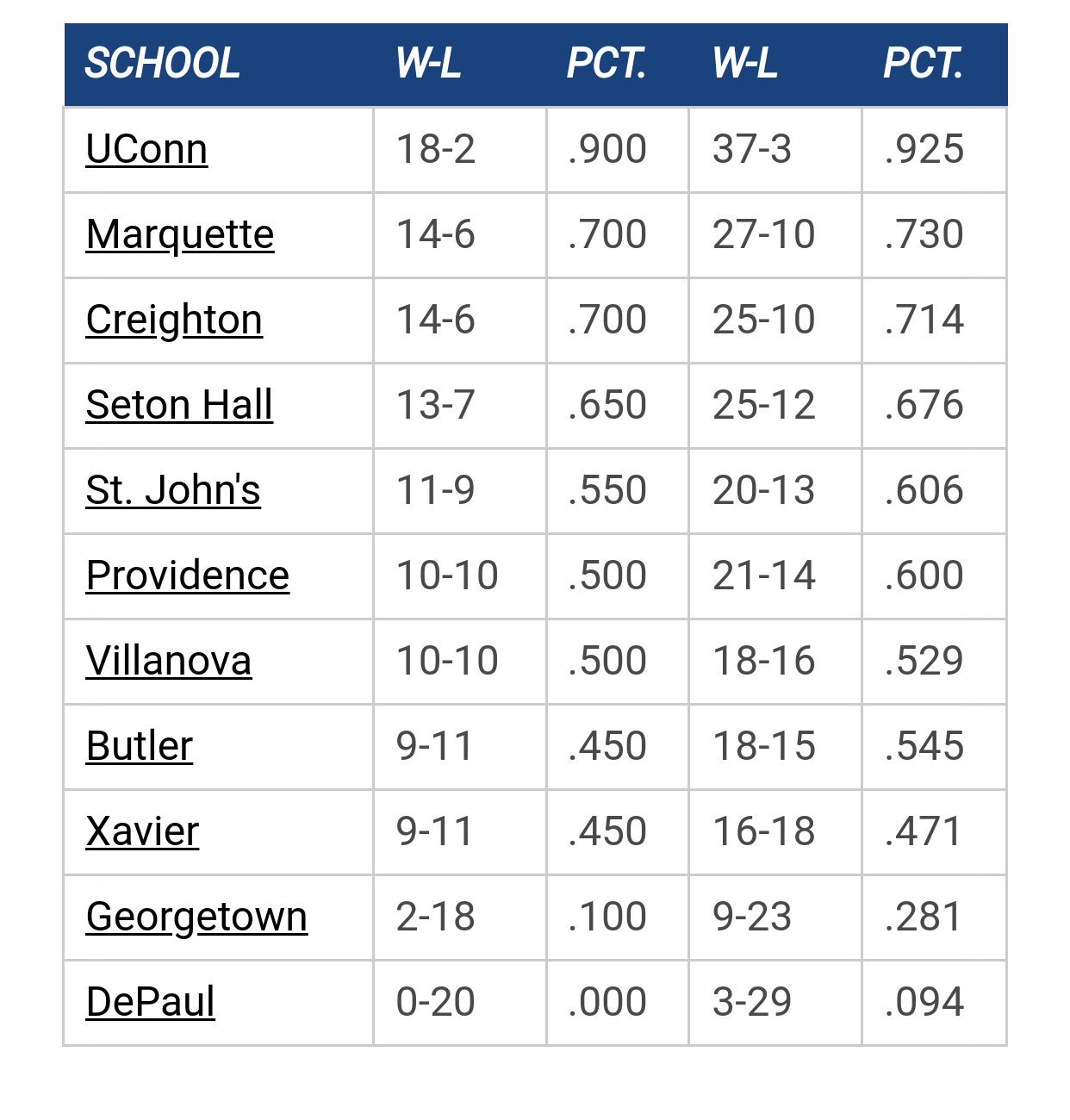- Welcome to MUScoop.
We're 3rd best! by #UnleashJosh
[February 23, 2026, 10:08:24 PM]
2025-26 College Hoops Thread by MuggsyB
[February 23, 2026, 09:42:28 PM]
Recruiting as of 1/15/26 by MU82
[February 23, 2026, 08:10:54 PM]
2025-26 Big East Conference TV Schedule by wadesworld
[February 23, 2026, 07:48:05 PM]
James/Stevens by muwarrior69
[February 23, 2026, 06:07:19 PM]
2025-26 Big East Thread by GoldenEagles03
[February 23, 2026, 05:00:34 PM]
Transfers in/out 2025-2026 by Juan Anderson's Mixtape
[February 23, 2026, 04:19:30 PM]
[February 23, 2026, 10:08:24 PM]
2025-26 College Hoops Thread by MuggsyB
[February 23, 2026, 09:42:28 PM]
Recruiting as of 1/15/26 by MU82
[February 23, 2026, 08:10:54 PM]
2025-26 Big East Conference TV Schedule by wadesworld
[February 23, 2026, 07:48:05 PM]
James/Stevens by muwarrior69
[February 23, 2026, 06:07:19 PM]
2025-26 Big East Thread by GoldenEagles03
[February 23, 2026, 05:00:34 PM]
Transfers in/out 2025-2026 by Juan Anderson's Mixtape
[February 23, 2026, 04:19:30 PM]
The absolute only thing required for this FREE registration is a valid e-mail address. We keep all your information confidential and will NEVER give or sell it to anyone else.
Login to get rid of this box (and ads) , or signup NOW!
Georgetown Date/Time: Feb 24, 2026, 6:00pm TV: NBC SN Schedule for 2025-26 |
||||||
User actions


